Are Refrigerators Fireproof? Can We Increase Their Safety?
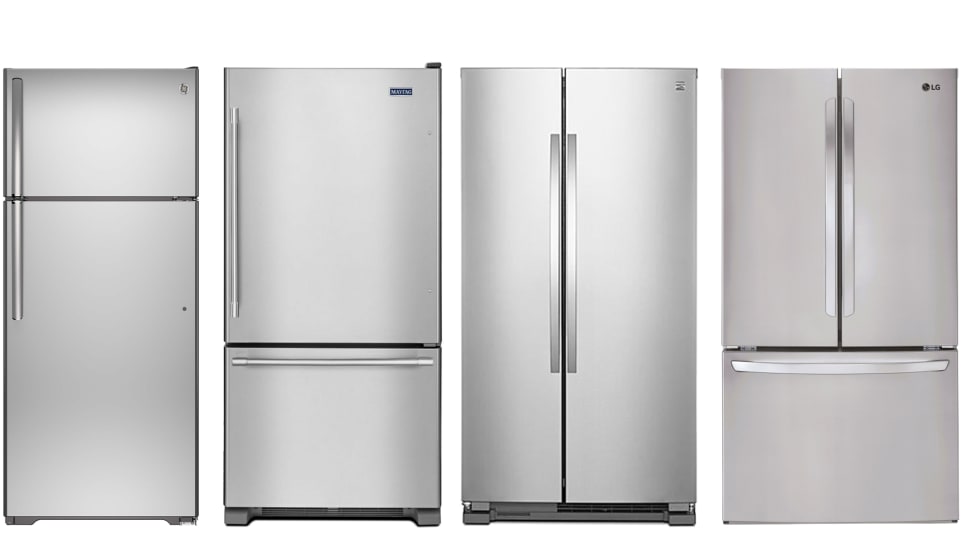
In most homes, fires are nearly unavoidable and we have a lot of electric appliances in the kitchen. However, because refrigerators are sealed to keep cold and frozen air in, it’s usual to wonder if they’re fireproof.
I was curious, so I did some research; here’s what I found out:
A refrigerator is not fireproof, and a fire started elsewhere can cause it to catch fire or destroy it. It may, however, burn more slowly than most appliances and may remain lit after a fire has been extinguished. While certain movies may lead you to believe that the refrigerator is fireproof, nothing could be further from reality. There’s still a lot to learn about refrigerators and flames.
When it comes to house fires, we’ll discuss more than just refrigerators in this post. We’ll also take a look at what causes refrigerators to overheat and how to avoid a refrigerator fire. Let’s start with it.
Is it possible for refrigerators to overheat, and why is the outside of the fridge so hot?
Yes, a refrigerator can overheat, although it’s typical for the outside of one to feel warm. It is because a refrigerator is built up of coils, the ones on the inside are cold, while the ones on the outside are hot. Something is wrong if the outside is hot to touch instead of warm.
Have you ever pressed your hand against the side or rear of your refrigerator?
You probably noticed that it was warm and were concerned that your refrigerator was overheating. However, the contents of your refrigerator are all right. The outside of your fridge has to perform much effort to keep the inside of your fridge cold. This generates heat, which is usually pushed out the bottom of your refrigerator’s exhaust vent. Unless it hurts or is really hot to the touch, you should not be alarmed by this heat. When this happens, your refrigerator is overheating. A little maintenance may usually go a long way toward avoiding fire from starting due to your refrigerator. If simple refrigerator maintenance fails, it may be time to consider purchasing a new refrigerator.
Overheating in your refrigerator is usually a symptom that a part is worn out or that something in the fridge needs to be repaired. If the situation isn’t addressed, it can lead to the starting of a fire. It is because many refrigerators have plastic backings, this is a concern. Some newer versions feature metal backings that preserve your fridge in better shape. On the other hand, the plastic backings can catch fire more easily and cause your fridge to burn more quickly, potentially causing the insulation to catch fire and hazardous chemicals to escape into the air.
Is this the case for all refrigerators? How about small refrigerators?
Is it true that all mini-refrigerators can also catch fire?
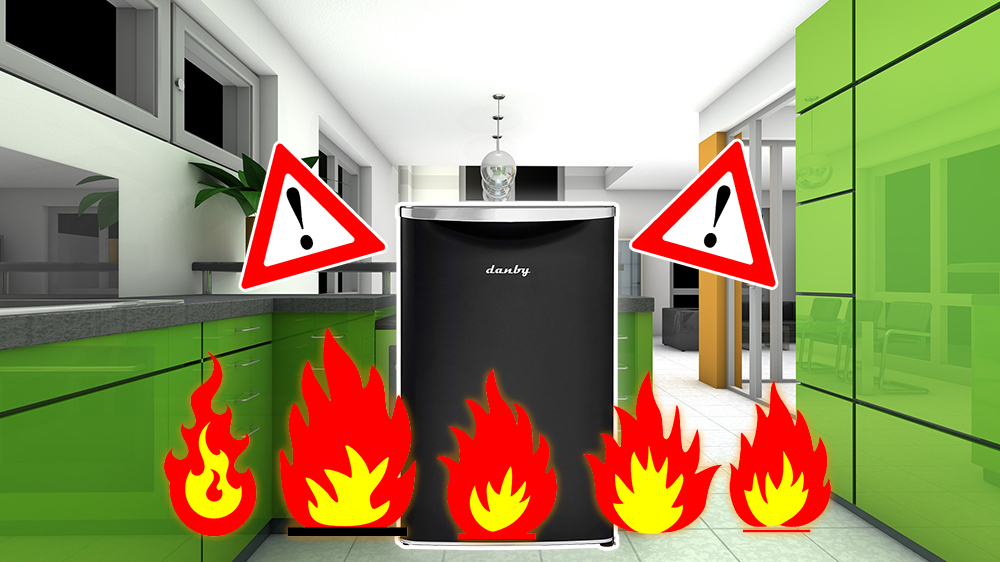
If the backing is constructed of metal, mini-fridges aren’t combustible. Suppose the fridge’s back is composed of plastic or anything other than metal, in that case, the backing may melt, causing a fire to develop in the insulation. The coils, which build up pressure from the gas inside them, or the fridge’s backing not being constructed of metal, are the two main factors contributing to a fridge catching fire. This is true for refrigerators of all sizes, including tiny and standard ones.
When there are objects underneath mini-fridges, they will have a more significant problem. This is why it’s critical to maintain it on a flat surface and to clean the back and underside of the fridge at least once every two weeks. It’s advisable to keep your small fridge off the carpet because it obstructs ventilation. Overall, it would be best if you didn’t have to worry as much about a mini-fridge catching fire as you would about a regular refrigerator catching fire.
That said, not all refrigerators are created equal.
Regardless of whether they’re small or not, you’ll want to pay attention to the material used on the back. This will tell you if your refrigerator is prone to catching fire. Your fridge is unlikely to catch fire if it has a metal backing. Even with a metal backing, though, you run the risk of your refrigerator overheating, which can be hazardous.
Is a hot refrigerator hazardous?
A warm refrigerator is not hazardous, but a hot refrigerator is. Not only do you have to be concerned about a fire starting, but a refrigerator could potentially explode as a result of trapped gases in the refrigerant system. As previously stated, a refrigerator features exhaust vents at the bottom that generally house the compressor. This is usually found at the back of the refrigerator and houses the motor and pump.
The gas refrigerant is pushed through the tight coils by these two factors. These are the coils that keep your fridge warm on the outside while keeping it cold on the inside. However, as the refrigerant flows through the fridge, it heats up, causing the coils to compress. As you may expect, this isn’t ideal when it comes to transferring gasses and liquids.
As a result of the incorrect ventilation, the gas becomes trapped. It builds pressure inside the coil, resulting in an explosion. Usually, an explosion causes a fire and so on. You could assume that a small explosion isn’t a big deal but consider this: that explosion has the potential to crack your ceiling and destroy your windows, as well as spark a fire!
Yes, a hot fridge can be very dangerous. We can only avoid this if we keep up with our refrigerator’s upkeep. Remember that while your fridge is unlikely to explode, it is possible, and just because it isn’t harmful now doesn’t mean it won’t be the most dangerous appliance in the event of a fire.
Is it possible for a refrigerator to start a fire?
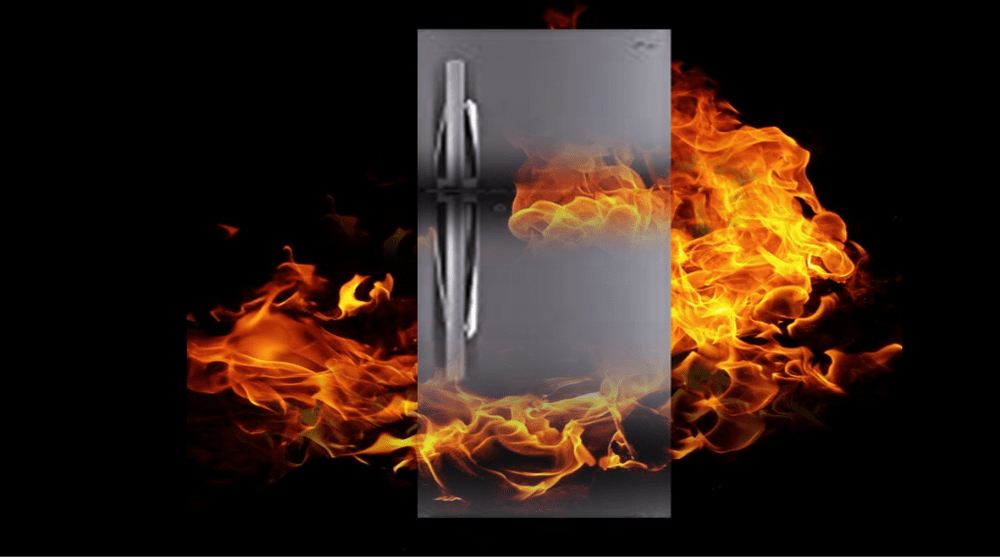
Yes, a refrigerator, like most kitchen appliances, can spark a fire. And anything that uses electricity poses a risk of fire. It is, however, a rare cause of house fires. While you can’t simply switch off your refrigerator, you may take steps to make it less prone to catching fire. Maintain your refrigerator on a regular basis and consider replacing it if you discover anything that could indicate a problem; it’s always better to be safe than sorry.
Your refrigerator can cause a fire by bursting, or it can contribute to a fire if the backing catches fire. Human mistakes rarely cause a refrigerator fire, and if it does, it may have been avoided with routine maintenance.
However, most of the time, these occurrences happen out of nowhere.
There have been reports of customers receiving a refrigerator that burst or caught fire after only a year of use. However, this is unusual, and most individuals will never suffer a refrigerator-related fire.
Here are some ideas for keeping you and your family safe in the event of a house fire.
To facilitate access, keep all exits and evacuation routes clear.
Make a habit of testing your fire alarms on a regular basis.
Check your appliances for wear and tear on a regular basis, and make sure that they are clean.
Toasters, mixers, blenders, and other appliances that can be unplugged after use should be kept unplugged.
If you detect a problem with any equipment, unplug it and turn it off right away.
Keep an eye out for recalls from manufacturers.
Always prepare and rehearse a fire escape route at least a few months out of the year. In the event of an emergency, this will assist your children and pets. While you can’t disconnect a refrigerator, you can unplug a variety of other equipment to make your house safer. After each use, try to unplug your toaster, and you can even unhook your coffee maker or blender from the morning routine.
What are the most common fire-starting appliances?
The following are some of the most common household appliances that cause fires
- Dryer
- Range
- Dishwasher
- Toaster
- Refrigerator
However, we’ll take a closer look at a number of them further down. It’s no secret that the appliances in our homes have the potential to start a fire. Most house fires begin in the kitchen, mainly due to aging equipment or a lack of attention to the appliance in use.
While the refrigerator is one item to be cautious about, there are a few others to keep an eye on.
In the kitchen, the following equipment is most likely to start a fire:
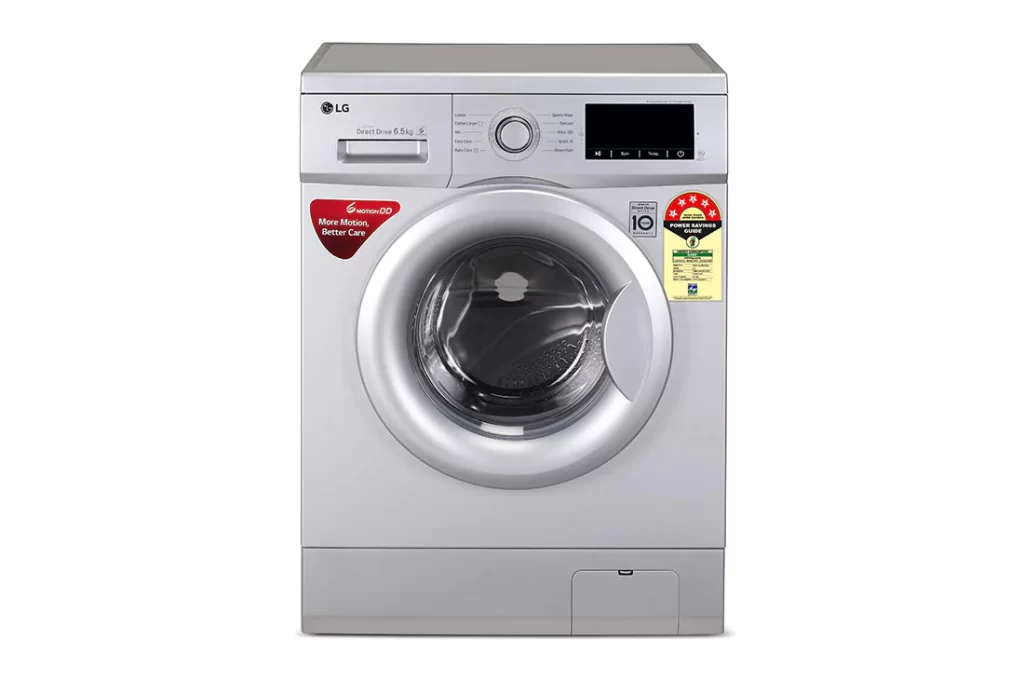
Machine for washing clothes – It’s all too easy to dismiss the washing machine as a potential fire starter. After all, the only source of heat is hot water from your hot water heater, which is, well, full of water! However, washers are the most common source of home fires!
Faulty circuit boards or a frayed or damaged power cord are the most likely causes of fires. That’s why these fires don’t start in the washer’s drum. They’re more likely to spread to the surrounding area instead of traveling towards a water supply.
Dryer - The dryer appears to be more visible than the washing. After all, it gets hot and maybe heated with electricity or gas. There’s also the lint trap and dryer vent, which can potentially become blocked with flammable material. So, make sure to wipe the lint tray after each use. Then clean your dryer vent at least once a year. When loads take significantly longer to dry than usual, you’ll know it’s time to clean those vents.
Stove - The cooktop is at the top of our list. With an open heat source, it’s easy to see how fires could occur. When left unattended and in use, stovetops are the most deadly.
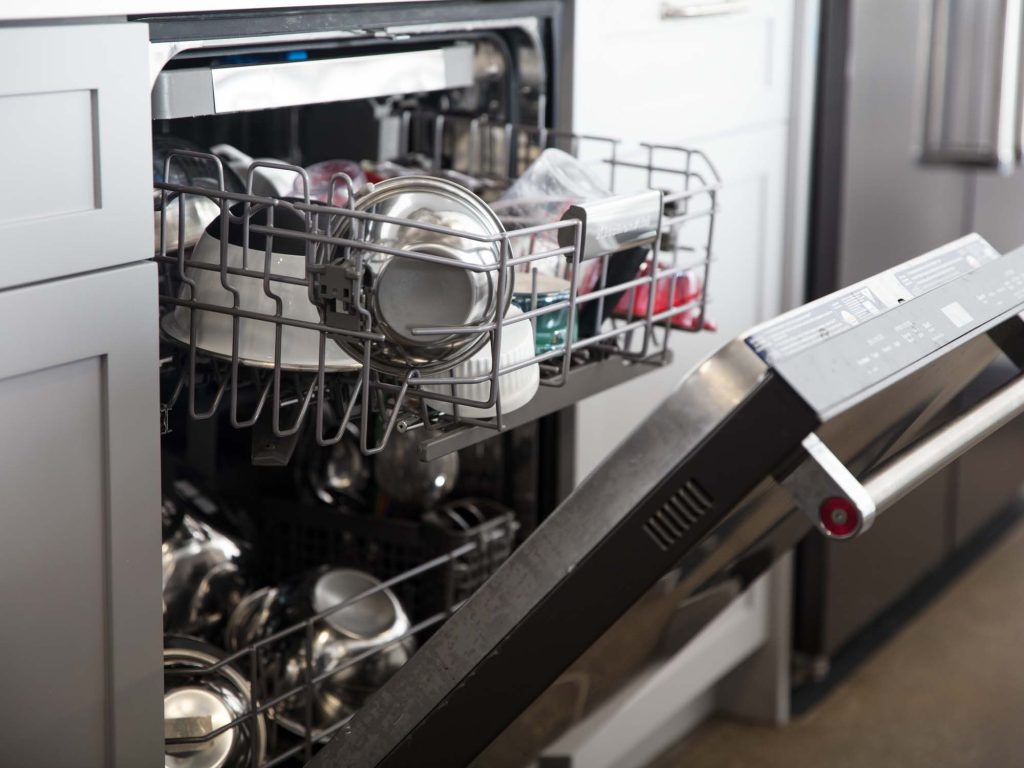
Dishwasher - It does, after all, operate on water, but it, like the fridge, can have broken cables and parts. When a dishwasher is on a heating cycle, it is the most common source of fire. Every time you use this heating element, it gets wet, warms up, and cools down. It’s not a good idea to leave the dishwasher running when you leave the house.
Toaster: Due to its open heat source, this device is well-known for starting fires. Your toaster is unlikely to catch fire if you take adequate care of it. It would be best if you always unplug your toaster after each use for safety reasons.
Fridge: As this article has demonstrated, it may not be the first appliance that comes to mind when it comes to kitchen fires. Lack of maintenance and obsolete parts are more likely to cause fires in this device than human error. While they can last for years, if your fridge is over fifteen years old, it’s time to replace it. If it’s more than eight years old, you should think about getting its inspection and maintenance. While it’s easy to forget that our appliances require attention as well, it’s critical to stay up with routine maintenance.
Consider this: you’re more likely to replace your old coffee maker than your refrigerator. But what if purchasing a new refrigerator resulted in you saving money since your entire house did not go up in flames? Investing in your home and the people who live there is preferable to having to pay for a funeral and a new home.
Have I covered everything you needed to know about fireproofing refrigerators?
We discussed why fires start with a refrigerator, what other appliances to watch out for, and how to prevent a fire or explosion in your house. It’s not common to hear of a refrigerator causing a house fire, but it does happen.
While your refrigerator isn’t fireproof, there are steps you can do to keep it from starting a fire. Metal fridge backings can save your life, and keeping up with your fridge’s upkeep will help it last a few more years. In the event of a fire, remember to plan an escape route in your home. This could mean the difference between everyone getting out of the house and not getting out of the house.











